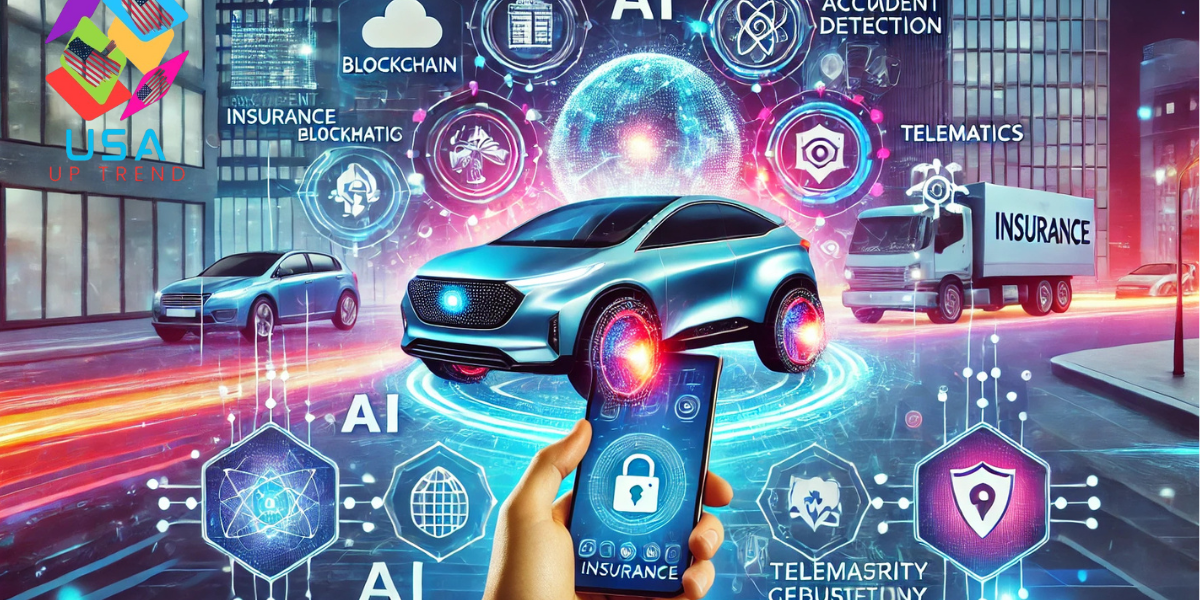Technology is altering each industry, and auto insurance is no exception. The impact of technology on auto insurance is that efficiency, reduced costs, and a better customer experience are concerned. Artificial intelligence (AI) to telematics and blockchain, insurers are using digital advancement to upgrade operations. Streamlining of claims is what the impact of technology on auto insurance is doing, and it transforms the way risk is analyzed and policy is managed. In the ever-changing world of technology, insurers must adapt to remain competitive while they serve their best.
Evolution of Auto Insurance via Technology
The traditional auto insurance used to make basic risk assessment, manual processing of claims, and personal face-to-face interactions. Nonetheless the current technological revolutions have changed many facets of the industry.
- Telematics and Usage-Based Insurance: Monitor vehicle use trends in order to personalize the premium.
- AI and Machine Learning: Automation of claims processing and fraud detection.
- Blockchain Technology: Protecting transactions against fraud.
- Mobile Apps and Chatbots: Improving customer services and integrating policy management.
- Big Data Analytics: Risk evaluation and pricing enhancement.
- Self-driving Car Insurance Models: Adjustment of policies.
- Cloud Computing: Enhanced security and storage capacity.
Key Technologies Transforming Auto Insurance
1. Telematics and IoT
Telematics devices enable collection of real-time driving information, including speed, braking patterns, and mileage, which an insurer can use to offer Usage-Based Insurance (UBI). The premium is pegged to actual behavior instead of general demographic factors. Fewer premiums for safe drivers, while higher ones for the risky.
In addition the collection of accident data in real-time by IoT sensors in vehicles supports instant assistance and initiation of claims without delays improving customer experience.
2. Artificial Intelligence
AI is transforming the insurance world because claims will be automated risks analyzed and fraud detected. AI chatbots handle customer service available 24/7 while AI analytics enhance the underwriting process accuracy.
Moreover, AI can predict accident risks based on driver history weather conditions and traffic patterns, allowing insurers to proactively manage claims and risks.
3. Blockchain Technology
Blockchain offers secure, transparent transactions, hence reducing fraud and expediting the processing of claims. Smart contracts, through blockchain, automate renewals of policies and payouts.
This technology eliminates intermediaries as it allows for direct communication between insurers and policyholders, reducing administrative costs and improving efficiency.
4. Mobile Apps and Digital Platforms
Mobile applications revolutionized how customers interact with insurance companies, making it possible to purchase policies, submit claims, and pay premiums online within a few taps. Digital platforms make automobile insurance easier to attain.
Some of the mobile applications may include telematics to enable users monitor their driving habits and ascertains how they spend money that is mostly withdrawn from their premiums.
5. Big Data Analytics
Insurers exploit big data for risk model refinements, personalized policies, and claims trend forecasts. Mass amounts of data allow insurance companies to make the best decisions possible to improve profitability.
Big data analysis with the support of AI technology helps insurers to identify fraudulent claims and to predict future risks with greater accuracy in order to ensure fair pricing and smooth risk management.
Benefits of Technology in Auto Insurance
1. Enhanced Risk Assessment
Insurance companies are now able to calculate risks more accurately. Telematics and artificial intelligence assess driving behavior, allowing insurers to price their policies with higher accuracy. Consequently, premiums become fairer, rewarding those who drive safely and discouraging those who drive recklessly.
2. Faster Claims Processing
Automation driven by AI speeds up claims handling that cuts down waiting time resulting in better customer satisfaction. Digital claims submission eliminates paperwork and enhances efficiency.
Automated claim verification using AI and blockchain significantly reduces fraudulent claims; ensuring only legitimate cases receive payouts.
3. Reduced Fraud
With analyzing patterns and verifying transactions, Blockchain and AI catch the fraudulent claims, thus saving insurers billions annually.
Moreover, identity verification and record-keeping in a digital format prevent identity theft and policy fraud.
4. Cost Savings
Automating processes reduces operational costs, leading to competitive pricing for consumers. Usage-based pricing models further ensure fairness in premium calculations.
From an expenditure standpoint, the lesser amount of administrative overhead and swifter claims processing percolate costs down to both insurers and insured.
5. Improved Experience for the Customer
Mobile applications and AI-powered chatbots lend their support in real time, while digital platforms facilitate policy administration, making auto insurance an easy task for the end user.
Personalized insurance plans, easy policy modifications, and real-time claim tracking improve overall customer satisfaction.
6. Better Road Safety
Insurers can influence safer driving behavior through incentives for responsible driving with telematics in the monitoring of driving behavior.
Some insurers also give drivers feedback that would help them improve their skills and minimize the risk of accidents.
Challenges of Technology in Auto Insurance
Despite its advantages, the impact of technology on auto insurance is not without problems.
| Data Privacy Issues | The gathering of real-time driving data poses privacy concerns. |
| High Implementation Costs | Investing in AI, blockchain, and telematics requires significant capital. |
| Cyber risks | Digital platforms and connected devices are vulnerable to cyber threats. |
| Legal and Regulatory Problems | Insurance law must adapt to new technologies. |
Future of Technology in Auto Insurance
The future promises even greater innovation in auto insurance. Emerging trends include AI-driven underwriting, autonomous vehicle insurance models, and advanced risk prediction through big data. As technology develops, auto insurance under the technology will flourish in enhancing efficiency and bespoke customization.
1. AI-Based Underwriting: Advanced AI models will automate the underwriting process, thereby expediting and improving accuracy in policy approval.
2. Insurance for Autonomous Cars: Deployment of self-driving cars will need some fresh ways of assessing the risks and accordingly setting the premiums.
3. Predictive Analytics: AI and analytics will be applied to pre-determine any accidents so that insurers may take measures to prevent them.
4. Cloud Applications: Cloud technology will improve storage, security, and accessibility for insurers and policyholders.
Conclusion
The impact of technology on auto insurance has been felt in ways such as efficiency, personalization and cost-saving. From AI-based automation to blockchain for security, telematics for pricing, technology is changing the industry. Are there challenges? Surely, but the advantages far exceed the disadvantages.
As digital upgrades continue, the auto insurance will become all the more smarter, accessible and easier for consumers as well as insurers. Adoption of innovative technologies will become a hallmark to stay ahead in the competitive market and meet the changing demands of policyholders.
Read more Articles about Technology and other categories at usauptrend.co.uk
1. In what ways has this telematics impacted carrier premiums for auto insurance?
Telecommunication refers to tracking driver behavior. Therefore, insurers are able to alter the premium according to the risk posed by the individual. Thus, safe drivers enjoy a cheaper rate.
2. Is AI replacing the human insurance agent?
AI replaces many tasks but cannot replace human agents in services that require personalized attention and complicated claims handling.
3. How does blockchain technology relate to auto insurance?
Blockchain provides full transparency, safe transaction execution, and fraud-free data through the application of smart contracts and distributed storage.
4. Are there privacy concerns with technology in auto insurance?
Yes, data collection raises privacy concerns, but regulations and encryption measures aim to protect consumer information.
5. How will autonomous vehicles affect auto insurance?
Autonomous automobiles will transfer liability from the driver to the manufacturer and the software provider, necessitating novel insurance modalities.




